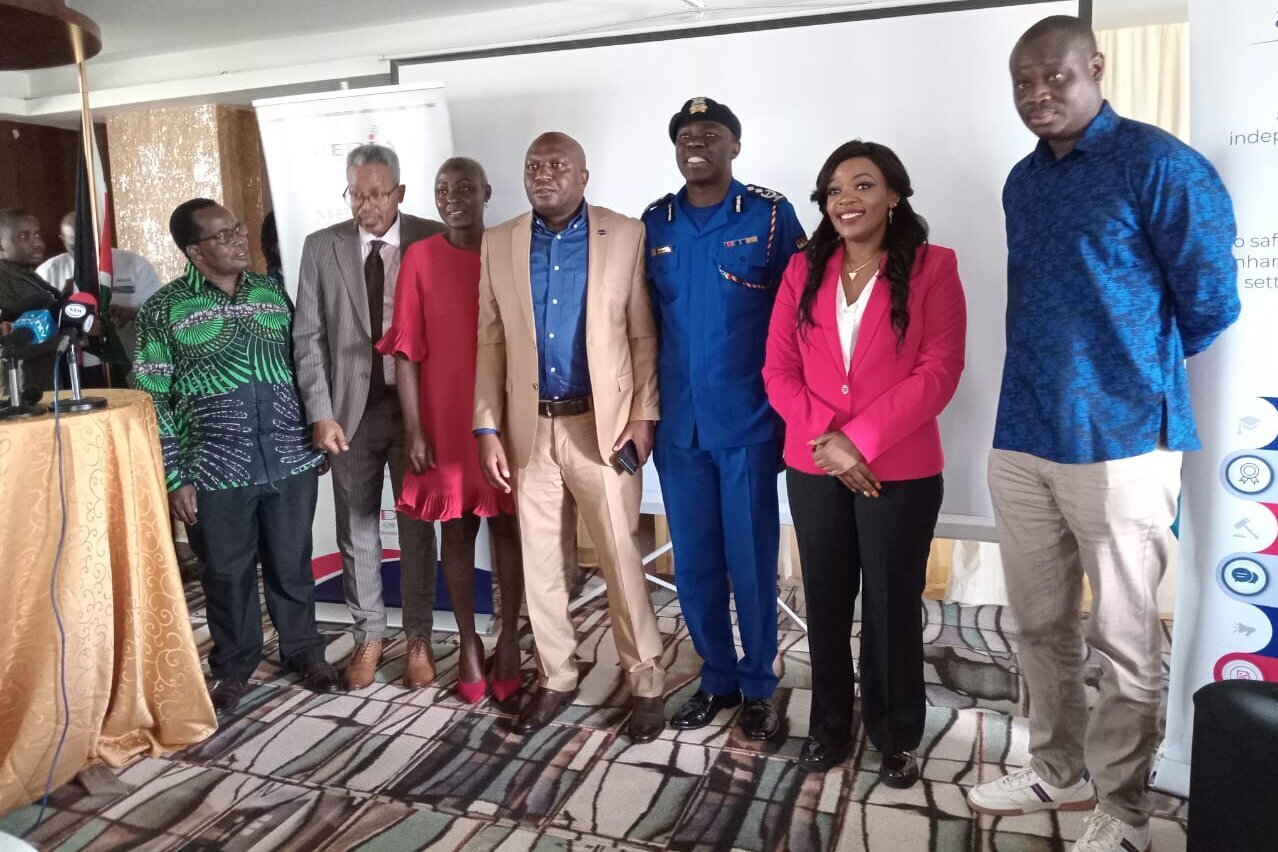Survey reveals 'slavery' in the media practice in Kenya

A group photo with the Media Council of Kenya CEO, Mr David Omwoyo (in suit) at the Concord Hotel & Suites in Nairobi during the World Press Freedom Day celebrations on May 2, 2025. Photo/Juma Namlola
Journalists working without contracts and lacking medical cover are the greatest threats to the freedom of the media in Kenya.
A Media Council of Kenya (MCK) survey report on Dignity of Media Workers shows 71 percent of all media workers in the country are employed on temporary terms.
Speaking during the presentation at The Concord Hotel & Suites in Nairobi, MCK Chief Executive Officer, Mr David Omwoyo, said only 29 percent of media workers are on permanent and pensionable basis.
"In addition to working as casual labourers, even among those permanently employed, more than half of them don't have medical covers," said Mr Omwoyo.
The report also tackles the issue of poor or no pay among journalists.
During the research in all 47 counties, respondents said some had not been paid for five(5) months.
"Whereas some media houses cite poor economy, other stakeholders need to support the media industry," said Mr Omwoyo.
He urged actors in the media ecosystem to protect the safety and dignity of journalists.
Kenya Union of Journalists (KUJ), Secretary General, Eric Oduor urged media stakeholders to push for the implementation of the constitution on fair labour practices.
Mr Oduor said his union had pursued a specific case involving the Standard Group, which has failed to pay its current and former employees for months.
“A few weeks ago, former employees of Standard Group approached KUJ and asked for support to demand their delayed salaries and benefits. It is unfair that some senior editors in the media house accused me of playing politics. Fair labour practice is a constitutional requirement under Article 41 of our Constitution,” he said.
He was referring to an incident where former Standard Group staff accused the media house of failing to honour financial agreements despite years of service. They included unpaid salaries, non-remittance of pension deductions, and unpaid redundancy dues.
Participants at the World Press Freedom Day narrated how some media stations encouraged brown envelope culture by demanding journalists to deliver stories without transport facilitation or pay.
In some instances, reporters would be rebuked for demanding pay and yet they carried microphones.
The Code of Conduct for Practice of Journalism in Kenya states in 3 (3b) that a Person under this Act shall not: Solicit or accept gifts, favours or compensation from those who might seek to influence coverage; (c) Engage in activities that may compromise their integrity or independence.
